Travel Tips for your Journey through Chile
Do I need a visa for Chile? Is the European driving license accepted for car rental? Is it possible to travel to the south of Chile in winter?... We are experts for Chile and support you with helpful information for your journey.
Do I need a visa for Chile?
Visa and Entry Requirements for Chile
The entry requirements for Chile depend on the nationality. Many travelers do not need a visa for a stay up to 90 days. You can find more information here.
When entering Chile, you will receive a tourist card. The document must be submitted again when leaving the country. If the inconspicuous slip cannot be presented, penalty fees and travel delays may result at the moment of border crossing. Since September 2021, it has also been possible to apply for a reissue digitally. The PDI provides an online form for this purpose.
Chilean regulations for traveling with underage children are very strict, especially for children with Chilean or dual nationality and when accompanied by only one parent. Under certain circumstances, birth certificates and a notarized travel permit must be presented.
Please also note the special entry requirements of Rapa Nui.
Furthermore, the Chilean customs authorities require an affidavit for the products carried on entry. As part of the ongoing digitalization, this should be done using the online form (red button, from then on in English). We recommend completing the digital form 48 hours before crossing the border to Chile and saving the receipt offline.



Do I need vaccinations for a trip to Chile?
Health and Medical Care in Chile
Health risk factors in Chile do not differ significantly from those like in Europe. With some exceptions, medical care is also comparable in the country's larger cities. Required
vaccinations depend on the origin of the traveler. Some people are advised to be vaccinated against dengue infection, according to the travel region (especially Easter Island / Rapa Nui) and
duration of their stay.
In central and southern Chile, drinking tap water is generally safe for most people, but travelers are generally advised to drink mineral water as a preventive measure.
In addition to geographical risks such as earthquakes, altitude sickness in particular must be taken into account during stays in the Andes without prior
altitude adjustment.
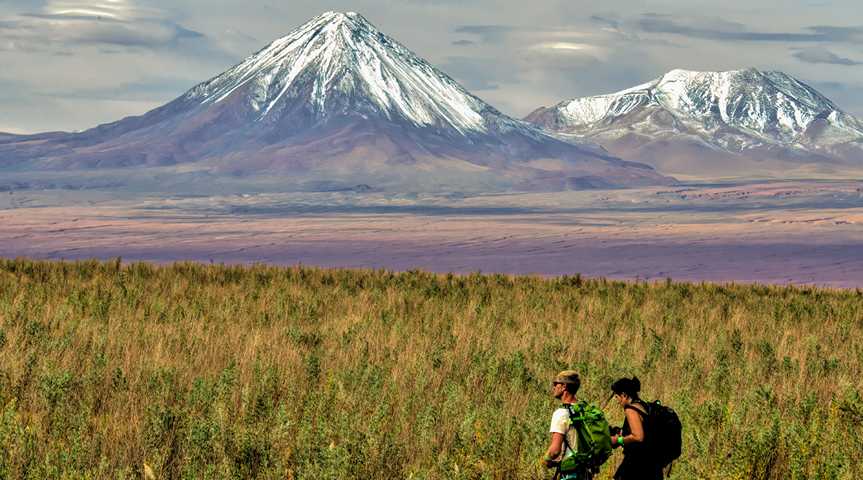
Is Chile a dangerous country to travel?
Crime in Chile
Chile is known as one of the safest countries in South America. Nevertheless, increased caution is required, especially in larger cities. We recommend not to carry valuables openly and to pay special attention to your bags, e.g. in local transport. So for example, some people may be tempted to steal a high quality camera and gain the value of the Chilean minimum wage of several months. Particularly at the airport of Santiago, trick thieves who pretend to be transfer or taxi drivers have to be considered. For this reason, we point out that all of our transport providers can document themselves or the transfer order for our customers.



Do I need insurance for my vacation in Chile?
Travel Insurance
In most cases, everything goes according to plan. But you can't rule out all risks on a trip to Chile - whether job changes shortly before the start of the trip, an illness during the vacation or the loss of luggage on the flight home. For this reason, we recommend you to travel with an insurance which covers you in case of cancellation, interruption of the journey, illness and loss of luggage. We are happy to assist you in choosing the appropriate insurance package.

What time of year is best for a journey through Chile?
Weather and Travel Season
From a climatic point of view, the months November to March are generally very suitable for traveling through Chile. This is the local summer season, which means that the weather
conditions in the rough south and in the mediterranean center are warmer and less rainy. The north of the country near the coast is mild to warm during the whole year. At the same time,
Chilean summer is the main season, which means that some travel destinations are sometimes very busy.
From April to September is the colder season. During this time, more frequent rainfall, low temperatures and sometimes snow can be expected in central and southern Chile and in more mountainous
regions. It can happen that the weather conditions restrict the visit of places of interest and group tours have to be cancelled due to missing participants. At the same time, travelers get very
authentic impressions in the low season with the reduced number of visitors and experience the fascinating nature of the country from a very special point of view.
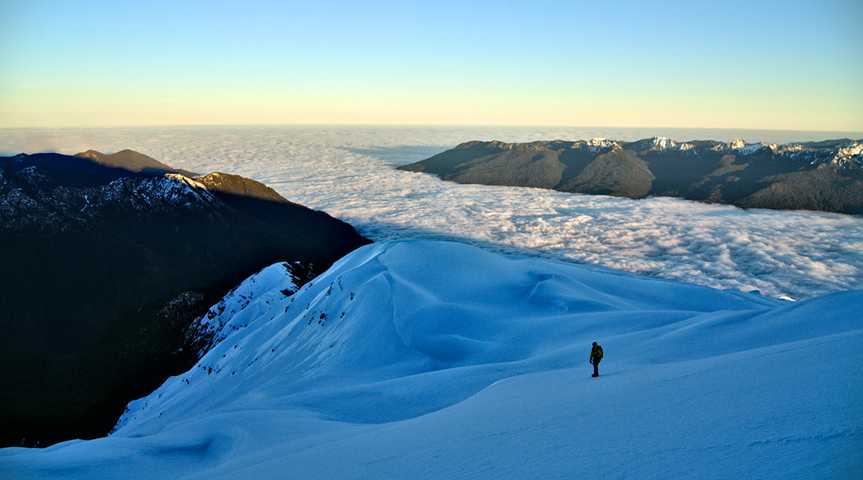
Can I communicate in English in Chile?
Language and Communication in Chile
Especially the young generation in Chile is becoming increasingly familiar with the English language. And English is spoken in most hotels and on guided tours. Nevertheless, in
many places it can be noticed that Chile with its geographical location is exclusively surrounded by other Spanish-speaking countries. Therefore, the language skills in Chilean society are
limited.
The attempt of travelers to communicate in Spanish quickly breaks the ice and thus, basic information can be transmitted even without a common language. But for a deeper insight into the culture
of the country and for a more intensive exchange with the local people, a knowledge of Spanish is undoubtedly very helpful.
If you would like to take part in a language course during your round trip through Chile, we are happy to assist you with the organization.
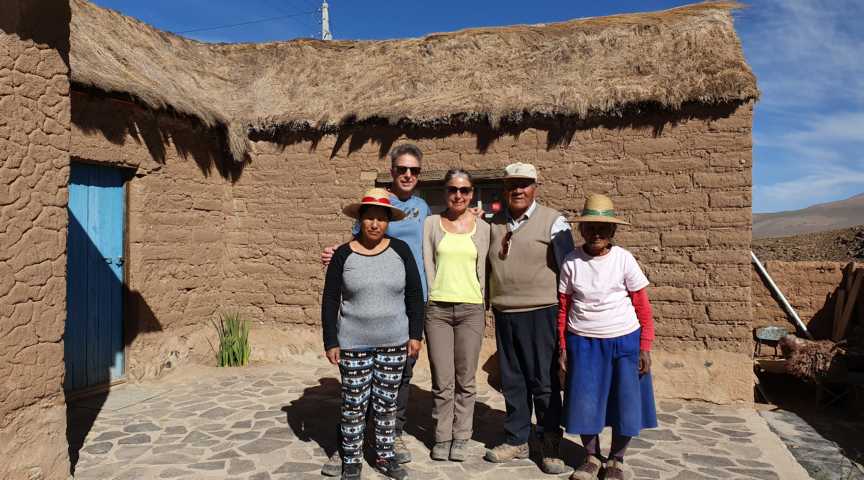
Do I need to exchange money before my trip to Chile?
Money and Payment in Chile
Many shops in urban areas accept payments by credit card. At the same time, it is advisable to start your journey with some money in the local currency and also to carry sufficient cash during the trip. For stays in neighboring regions of Argentina, you should have US$ on hand as well. Especially in larger cities and areas with good tourist facilities, including Santiago Airport, you can exchange money on site or withdraw directly from ATMs. Depending on the bank, there is usually a fee of at least €7.00 per withdrawal (with a maximum of approx. €300.00). In addition, fees may be charged by the local bank. Some banks may offer their customers to withdraw money from selected foreign ATMs without any fee. In Chile, this is currently almost exclusively possible free of charge at Scotiabank machines. Payment in US$ is accepted by some merchants, but it is not a common method of payment. Park admissions, on the other hand, are usually payable in cash in the local currency.



Is Chile an expensive destination?
Prices in Chile
In relation to other destinations in South America, Chile is a very expensive country to visit. Compared to central Europe, the costs for restaurant visits, fuel and personal services are a little lower. Food in supermarkets, medicines or imported items such as electrical goods are sometimes considerably more expensive than in Europe. From a financial but also from a touristic point of view, shopping in public markets is recommendable. Public local and long-distance transport is certainly reasonable for individual trips. However, since there is usually no special frequent traveler rate, regular use of public transport is quite expensive. Moreover, the respective tolls for journeys with a rental car or motorhome must be taken into account.
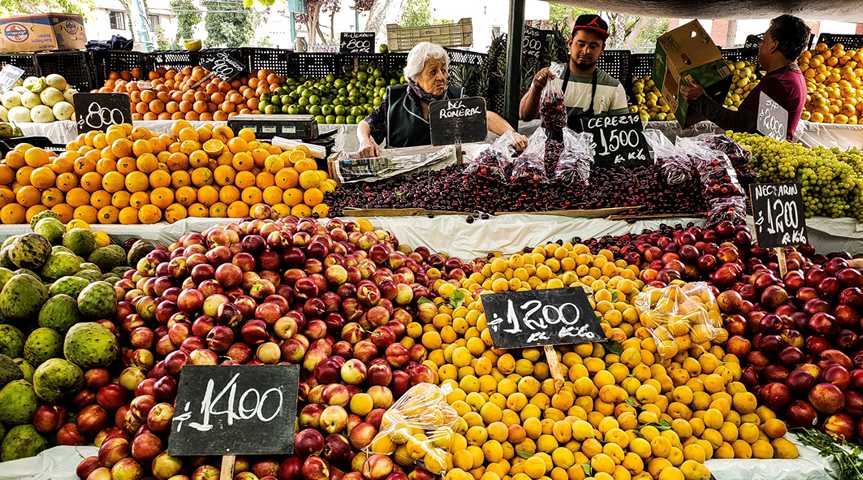
How much do you tip in Chile?
Tipping in Chile
The expected tip for cafés and restaurants is 10%. Please note that nowadays many café and restaurant operators have already added the 10% tip. This is noted on the respective
invoice. The payment of the corresponding tip is voluntary, you can agree, disagree or adjust the suggestion. For tours with very dedicated tour guides, a tip of about €5 is recommended. The room
service and driving services can be given €1 to €2.
Moreover, street musicians, comedians or packing assistants in the supermarket finance themselves often exclusively by noncommittal tips. For them, you should always have 500
Pesos (about €0.60) ready in your pocket.
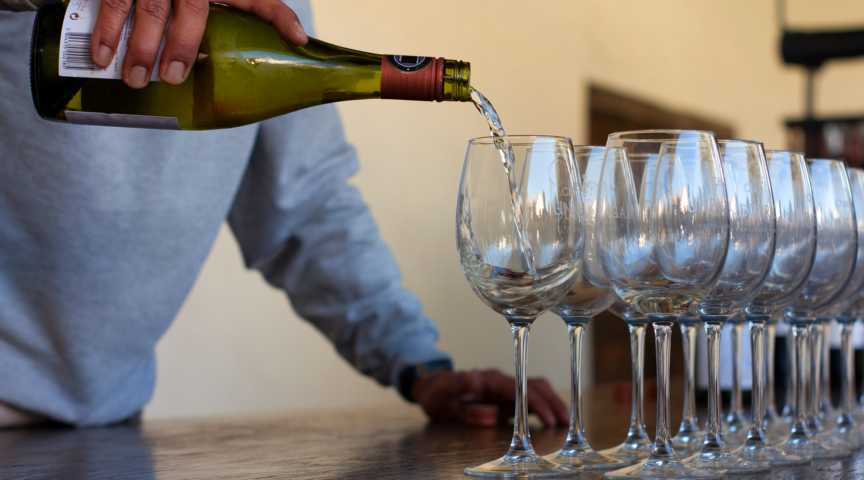
Do I need to book tickets for national parks in Chile in advance?
Tickets for National Parks in Chile
Like many countries around the world, Chile used the coronavirus pandemic as an opportunity to advance digitization in various areas, including access to its national
parks. Especially in highly popular protected areas like Torres del Paine, digital booking speeds up entry, leaving more time for what truly matters: enjoying nature.
However, digital ticket booking is not without its drawbacks. Limitations of ticket platforms regarding multilingual support and payment options are unfortunately common. Some reserves require
mandatory advance reservations, while others do not offer pre-sale tickets at all. Additionally, the limited availability of on-site ticket sales reduces spontaneity, particularly for self-drive
travelers in Chile. In some regions, local ticket machines are available as an alternative, but these are exceptions.
The majority of Chile’s nature reserves are managed by the national forestry agency, CONAF, including parks like Conguillío, Queulat, and Torres del Paine, which
require tickets to be booked in advance via a designated portal.
The reserves near San Pedro de Atacama are managed by the local Indigenous community, and entrance fees are typically paid directly at the gate.
In certain cases, tickets should be booked officially in advance: Valle de la Luna / Moon Valley; Lagunas Miscanti y Miñiques / Lagunas Altiplánicas / Salar de Aguas Calientes / Piedras Rojas; Laguna Cejar; Termas de Puritama; Laguna Chaxa / Valle de Jere / Salar de Tara
On Easter Island / Rapa Nui, the national park is also managed by an Indigenous communal authority, which provides its own booking platform.
Meanwhile, tickets for national parks on the Argentine side are sold through a government portal.
To avoid conflicts or inconveniences, we recommend booking entrance tickets online in advance. For multi-day visits, such as trekking tours in Torres del Paine, ticket validity
can often be set for several days. Given the limited language options of many platforms, we suggest using browser extensions like DeepL or Google Translate for translations.



What should I take with me on a trip to Chile?
Luggage for Chile Trips
What you should take with you on your trip depends very much on which region of Chile you visit at what time of the year and what the focus of your trip is. In general, we recommend to carry the following items in addition to the usual travel accessories:
- Warm and rainproof functional clothing
- Solid footwear
- Sandals
- Swimwear
- Cap
- Sun protection and sun cream with factor 30 or higher
- Mosquito repellent
- Daypack
- Mobile phone
- Digital copies of your passport (e.g. in your email box)
- First-aid kit
- Socket adapter
- Driver's license
- Credit card (debit cards are usually not accepted for car rental) and alternative, second credit card as back-up
- Money in local currency for the first days
Flights within Chile are subject to similar baggage conditions as intercontinental flights. Generally, you can check in one piece of baggage weighing 23 kg per person. The limit for hand luggage is usually 8 kg.
In the event of delays in forwarding luggage, it is advisable to have relevant items for the first and second day of travel in your hand luggage.


Can I use normal plugs in Chile?
Electricity and Sockets in Chile
In Chile, type C and L sockets are used. For all other formats we recommend to take an adapter with you.
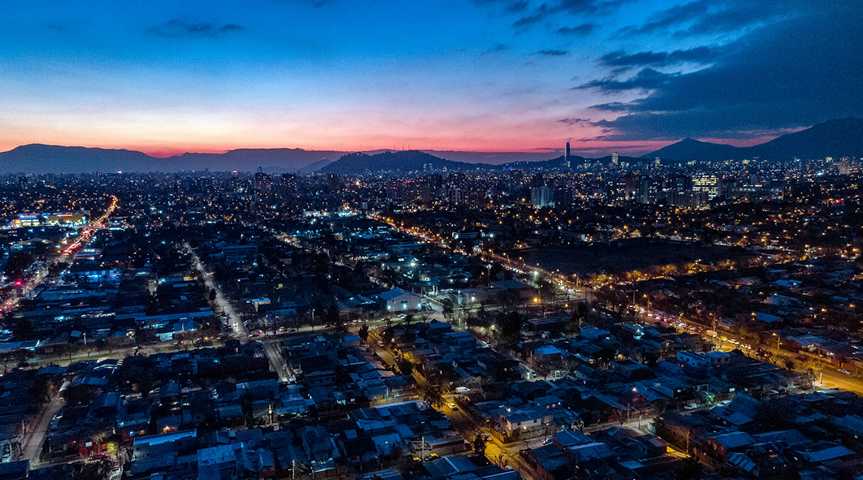
Is my European driving license sufficient for my self drive trip by rental car in Chile?
Driving License in Chile
We strongly recommend carrying an international driver's license. Although the European driving license is generally accepted when the rental car is picked up as well as during police controls, it is particularly useful to be able to show an international driving license in the event of damage. This in turn is only valid in connection with the national driver's license.


Do I have to station my motorhome in campgrounds in Chile?
Travel by Motorhome in Chile
Chile is well suited for motorhome trips due to its diverse nature and remote places of interest. At the same time, the country has a very limited camping culture. Staying in the open countryside and far from urban areas is a good option when traveling by motorhome. This is also tolerated by the authorities.
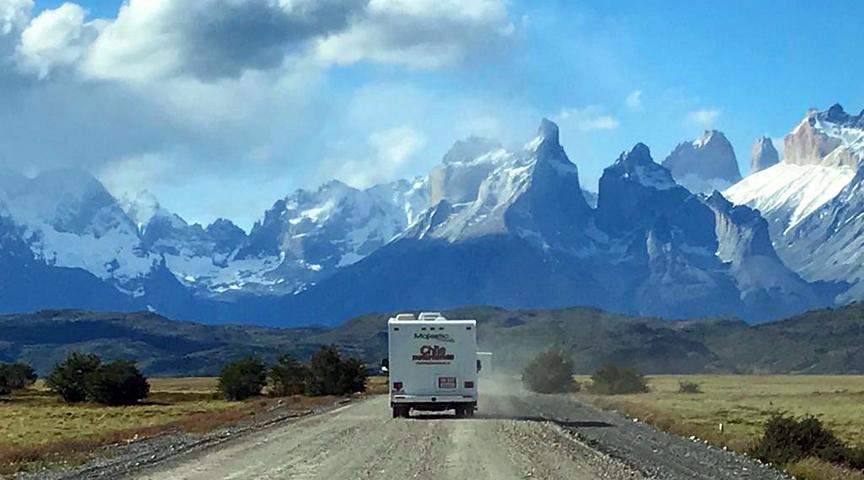
Can I use a Chilean SIM card in my cell phone?
Cell Phone Usage in Chile
Using your own cell phone on vacation in Chile offers many advantages. Whether as a GPS device on the road, as a digital entrance ticket to national parks or, of course, for communication back
home, it has become hard to imagine traveling without a smartphone. You can use your cell phone in three ways on your trip through Chile:
1. Using your cell phone via WLAN
You can use public Wi-Fi connections in your hotel, in cafés or at airports to make internet calls via providers such as WhatsApp or Skype and access to all other online
services. Phone calls and messaging services without an Internet connection are not possible.
2. Using your cell phone via roaming
Use your cell phone via the roaming function and access to local networks. Phone calls, text messages and data usage are billed as international services and incur corresponding
costs.
3. Using the cell phone with a Chilean SIM card
You can use your smartphone with a Chilean prepaid card. You obtain these easily and cheaply in many small local stores. It is relatively simple to book data packages for the
mobile internet and make local phone calls. This requires that your phone is unlocked. The use of a non-Chilean cell phone with a Chilean SIM card is tolerated for 30
days. Bypassing a subsequent block involves a rather bureaucratic phone registration process, which consists of presenting ID, proof of purchase of the phone and the IMEI code.
Registration takes a few days and is particularly recommended for people who are in Chile for long periods or frequently. Further information can be found here.



What do I do if I get sick in Chile?
Incidents on a Journey through Chile
Did the Chilean food make you sick? Or did you lose your passport? Sometimes your luck runs out. For these and similar cases we provide you with our emergency contact list. Here you will find, for example, a link to the Chilean pharmacy network or the phone number of the car breakdown service.
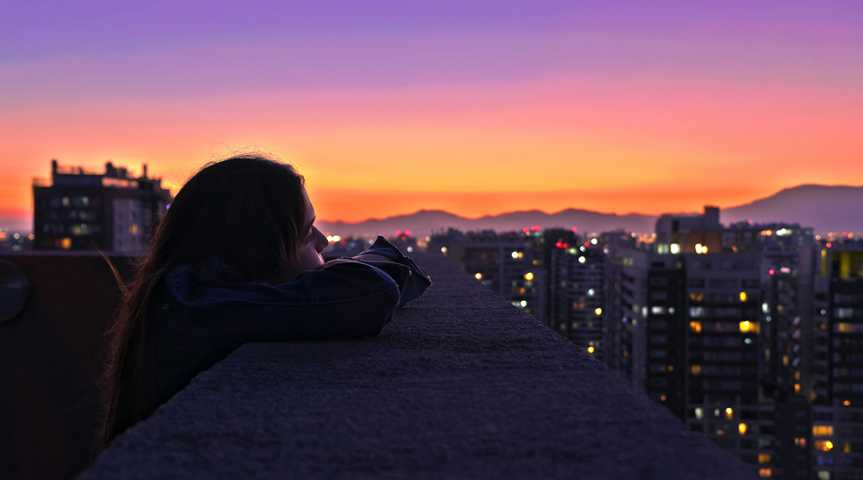
* The travel tips listed here are based on our country-specific knowledge and experience. However, they are not legally binding.
Do you want advice?
Write us your travel wishes.
We tailor your journey through Chile.

